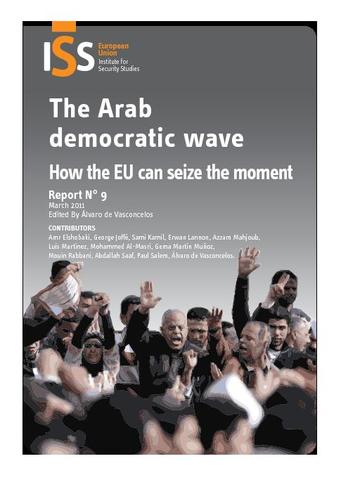You are here
The Arab democratic wave: how the EU can seize the moment

The failure of the authoritarian model in the Mediterranean calls for a radical overhaul of EU Mediterranean policy and for a new paradigm. Political reforms should be reinstated as the major priority.
- To deal as a matter of priority with the socio-economic situation, including convening an international donors’ conference to support Tunisia and Egypt, and assist in easing the immediate economic and financial impacts of the uprisings. This should include the creation of a financial institution based on the experience of the European Bank for Reconstruction and Development (EBRD) in central and eastern Europe in the 1990s.
- To urgently adapt the instruments and facilities under the Neighbourhood Policy to the specific demands of supporting democratic transformation, and move from the ill-defined ‘advanced status’ currently offered to some countries in the region to inaugurating a new generation of association agreements. These would be open to the countries undergoing democratic transition, and would in time give their citizens access to all the freedoms of the single market, including, progressively, the free movement of people. Economic cooperation should now prioritise an economic model that is appropriate for the region and an approach to trade relations that should favour job creation, social cohesiveness and social justice.
- To build, in collaboration with the countries now on the path to democratic governance, a new partnership with the explicit objective of creating a Euro-Mediterranean Community of Democratic States by the end of the decade. This partnership should be open to the states willing to sign up to its charter, in particular its democratic objectives.
- To make available EU ‘know-how’ on all critical areas of the democratic process, in particular with a view to the consolidation of democratic political parties and trade unions, security sector reform and reform of the media. Technical knowledge, consultancy and training courses could be delivered through established local NGOs.
- To accept the role of political Islam in the democratic processes of the respective countries and reach out to those parties who accept the rules of constitutional politics.
- To prioritise human rights in relations with the dictatorships and, in the face of lack of progress, to decide on sanctions targeting the dictators, their entourages and members of the repressive state apparatus, following the model applied to Belarus.
These recommendations are addressed to the European Union in the wider sense: EU institutions, European capitals, foundations and civil societies all have a role to play with the objective of actively supporting democratic processes in the region and opposing dictatorial regimes and violations of human rights. This report seeks to identify: (i) what has been the impact of the democratic revolutions in the countries of the region?; (ii) what are the main challenges to a successful democratic transformation?; and (iii) what priorities the EU needs to address in order to assist the pro-democracy forces, in particular in Tunisia and Egypt, and how it should adapt its Mediterranean policy to that end. The democratic revolutions and the failure of the Union for the Mediterranean should be regarded as an opportunity to define a new common objective to be achieved as part of a multilateral initiative: building a Euro-Mediterranean community and revising the Neighbourhood Policy accordingly.